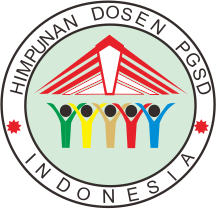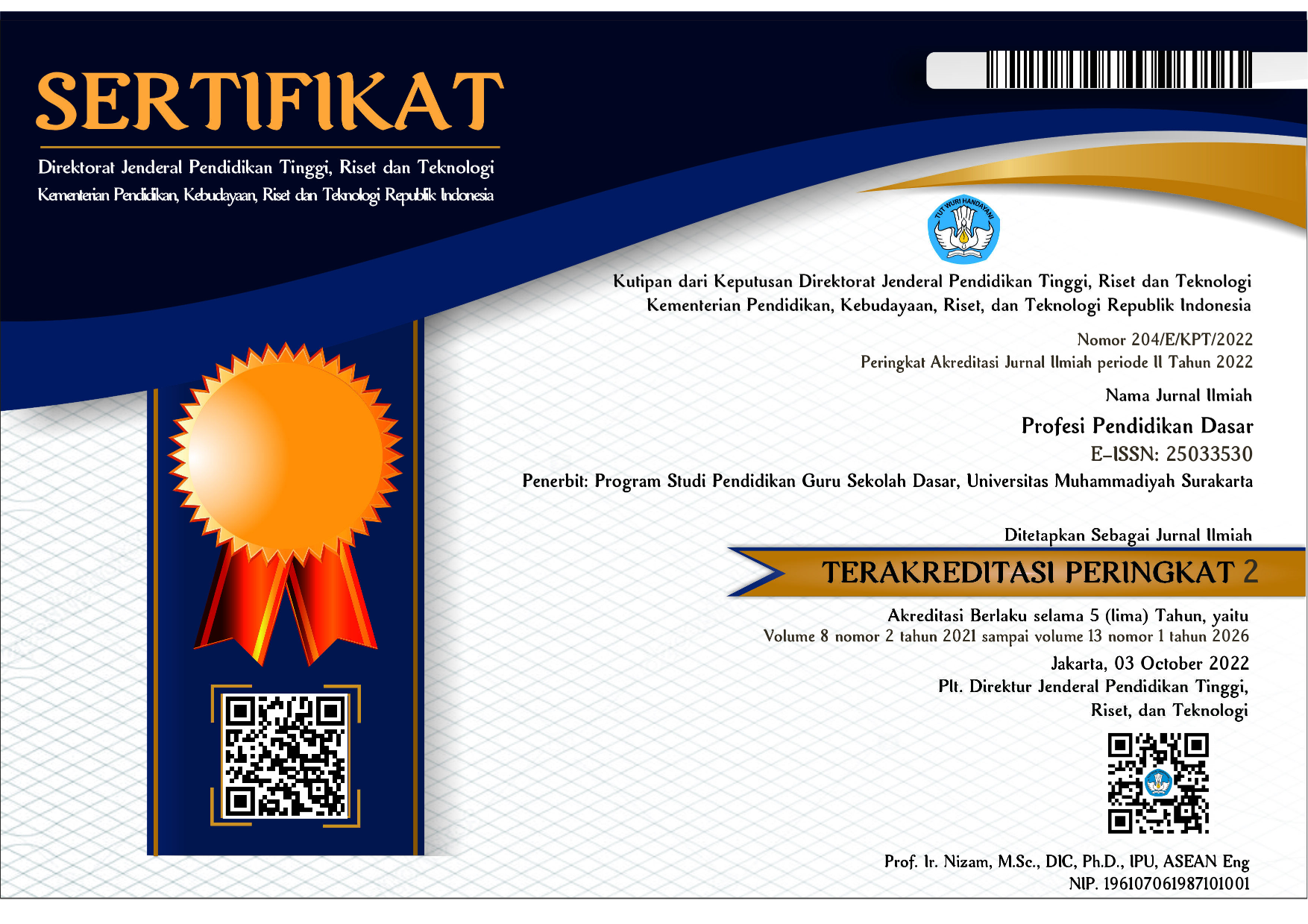ANALISIS KEMAMPUAN INOVASI PEMBELAJARAN GURU SEKOLAH DASAR DALAM IMPLEMENTASI PEMBELAJARAN TEMATIK KURIKULUM 2013 DI SEKOLAH DASAR
Anna Mariyani(1*)(1) STKIP Muhammadiyah Blora
(*) Corresponding Author
Abstract
Keywords
Full Text:
PDFReferences
Akbar, S. (2010). Pengembangan Model- model Pembelajaran Tematis untuk kelas 1 dan 2 SD: Identifikasi dan Perancangan Model Konseptual Pembelajaran Tematis untuk kelas 1 dan 2 SD. Laporan Penelitian, Malang: Lemlit UM.
Anitah W.S. (2009). Strategi Pembelajaran di SD. Jakarta: Universitas Terbuka.
Bogdan, B.C. and Biklen, S.K. (1982) Qualitative Research for Education, an Introduction to Theory and Methode. Boston: Allyn and Bacon, Inc.
Creswell, J.W. (2010). Research Design Qualitative, Quantitative and Mixed Methods Approach (Third Edition). Penerjemah Achmad Farwaid. Yogyakarta: Pustaka Pelajar.
Depdiknas. (2006). Kurikulum Tingkat Satuan Pendidikan. Jakarta: Depdiknas.
Joni, T. R. (1996). Pembelajaran Terpadu. Naskah Program Pelatihan Guru Pamong, BP3GSD PPTG Ditjen Dikti.
Lincoln, Y.S. dan Guba, E.G. (1985). Naturalistik Inquiry. London: Sage Publication.
Moleong, L.J. (2006). Metode Penelitian Kualitatif. Bandung: PT. Remaja Rosdakarya.
Mulyasa, E. (2013). Pengembangan dan Implementasi Kurikulum 2013. Bandung: PT. Remaja Rosdakarya.
Nasution, S. (1988). Metode Penelitian Naturalistik-Kualitatif. Bandung: PT. Trasito.
Sugiyono. (2012). Memahami Penelitian Kualitatif. Bandung: Alfabeta.
Suryosubroto. (2009). Proses Belajar Mengajar di Sekolah. Jakarta: PT Rineka Cipta.
Trianto. (2009). Mengembangkan Model Pembelajaran Tematik. Jakarta: PT Prestasi Pustakaraya.
Trianto. (2011). Desain Pengembangan Pembelajaran Tematik bagi Anak Usia Dini TK/ RA dan Anak Usia Kelas Awal SD/ MI. Jakarta: Prenada Media Group.
Uno, H.B. (2009). Profesi Kependidikan: Problema, Solusi, dan Reformasi Pendidikan di Indonesia. Jakarta: Bumi Akasara.
Article Metrics
Abstract view(s): 1713 time(s)PDF: 1472 time(s)
Refbacks
- There are currently no refbacks.


















